Most Popular
Hello Hangeul
-
1
Welding book first in vocational Korean series for foreign labor
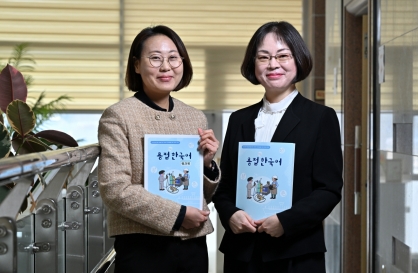
-
2
[Korea Beyond Korea] In Sao Paulo, horizons expand for Korean studies
![[Korea Beyond Korea] In Sao Paulo, horizons expand for Korean studies](//res.heraldm.com/phpwas/restmb_idxmake.php?idx=644&simg=/content/image/2023/11/20/20231120000619_0.jpg&u=20231206104853)
-
3
In Brasilia, worldly dreams are born from Korean classes
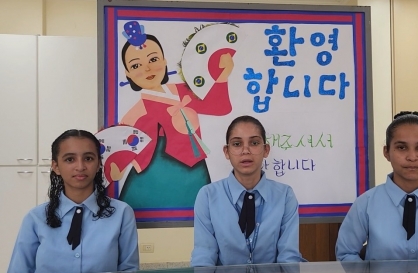
-
4
Americans seeking to visit Korea learn the language in LA
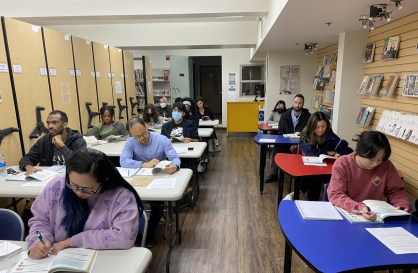
-
5
[Korea Beyond Korea] Berlin, Europe's Korean Studies hub, nurtures next-gen experts, scholars
![[Korea Beyond Korea] Berlin, Europe's Korean Studies hub, nurtures next-gen experts, scholars](//res.heraldm.com/phpwas/restmb_idxmake.php?idx=644&simg=/content/image/2023/10/18/20231018000929_0.jpg&u=20231023154735)
[Hello Hangeul] ‘Korean boom’ in Uzbekistan: How it all began
By Kim ArinPublished : May 16, 2023 - 16:47
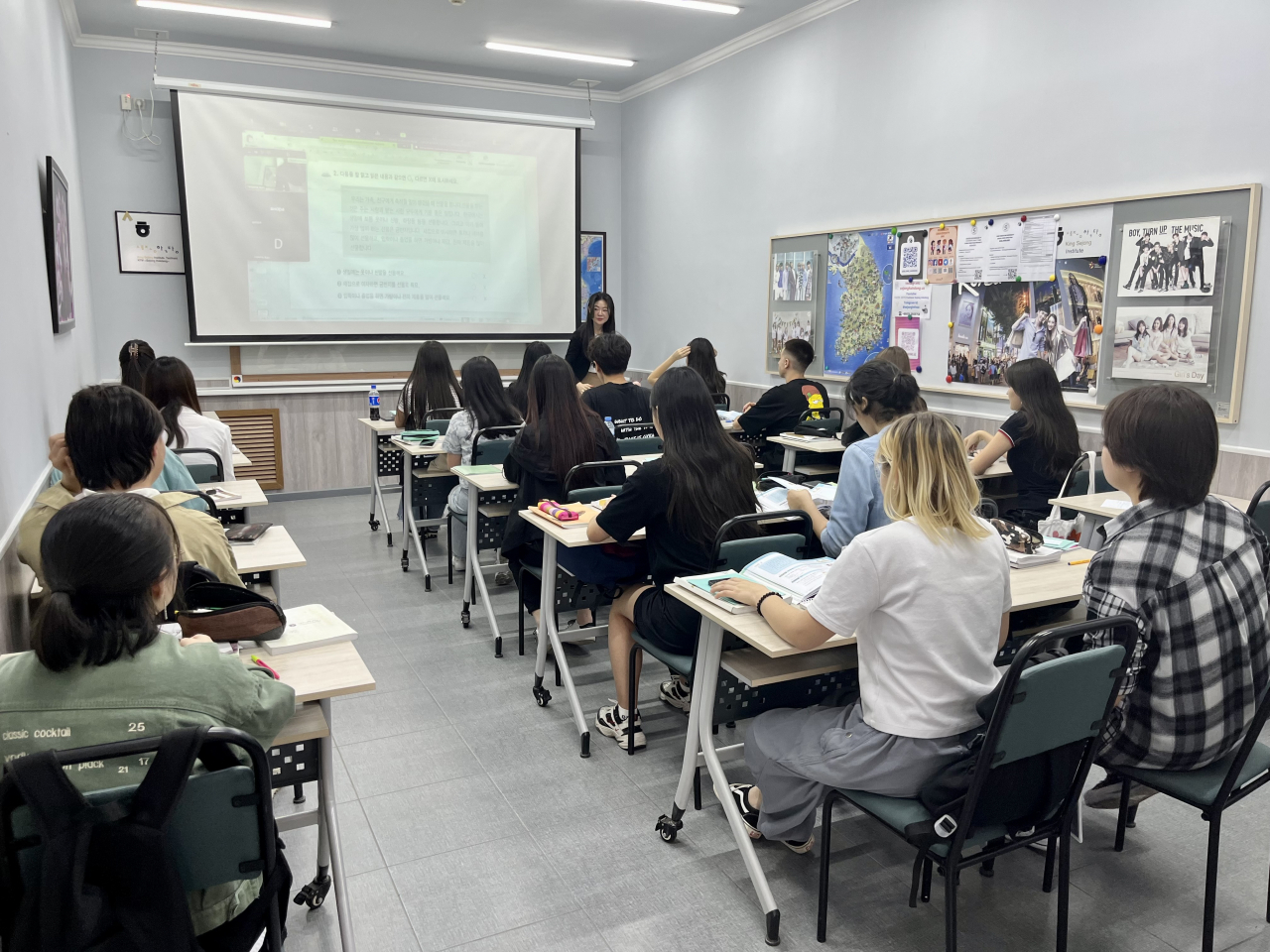
TASHKENT, Uzbekistan -- Thirty-one years ago, Hur Seon-haeng went to Tashkent to teach children of Korean War refugees the language of their motherland. Then he fell in love with the city and never left.
Over the decades, his school bloomed into a landmark for Korean education in Uzbekistan, having taught some 8,000 students of all backgrounds.
Hur, 58, landed in the Uzbek capital in March 1992 after graduating college with a degree in education. It was his professor who suggested that he teach later generations of Koryoin -- ethnic Koreans who settled in Soviet territories -- who were becoming estranged from Korean culture and language.
“My professor used to tell stories about how Koryoin were forced to relocate to Central Asia and forced to lose touch with their homeland and mother tongue. That’s when I began thinking about going there to be a Korean teacher.”
Hur, the director of the government-run King Sejong Institute for Korean language in Tashkent, said that had been his initial goal -- to help immigrants stay connected to their heritage and “spread the Korean language.”
“I thought of it as a kind of a mission. Soon it wasn’t about what I had envisioned for the Korean language,” he said. “My students became my motivation, and I wanted to help them flourish.”
Hur is “among one of the first Koreans” to come to Uzbekistan to settle after the Soviet bloc fell.
“Teachers like me were traveling to CIS countries to boost the number of Korean speakers,” he said. “The landscape of Korean learning in Uzbekistan has changed drastically since.”
For the first two decades, his students were mostly Koryoin settlers and their children, some of whom spoke North Korean dialect and many none at all. As Korean pop culture grew and more Korean companies started expanding business in the country, he said Uzbeks and people of other ethnic groups began knocking at the door of his school.
“I would say that it was the Korean popular culture like music and dramas that got more people other than Koryoin interested in studying the language, and that wasn’t until the 2000s,” he said. Korean also began being viewed as a “useful” language as Uzbek branches of Korean companies began hiring locals.
According to Hur, there are currently about 20,000 learners of Korean in the country. The Tashkent branch of the King Sejong Institute is one of the larger ones among the 273 set up around the world.
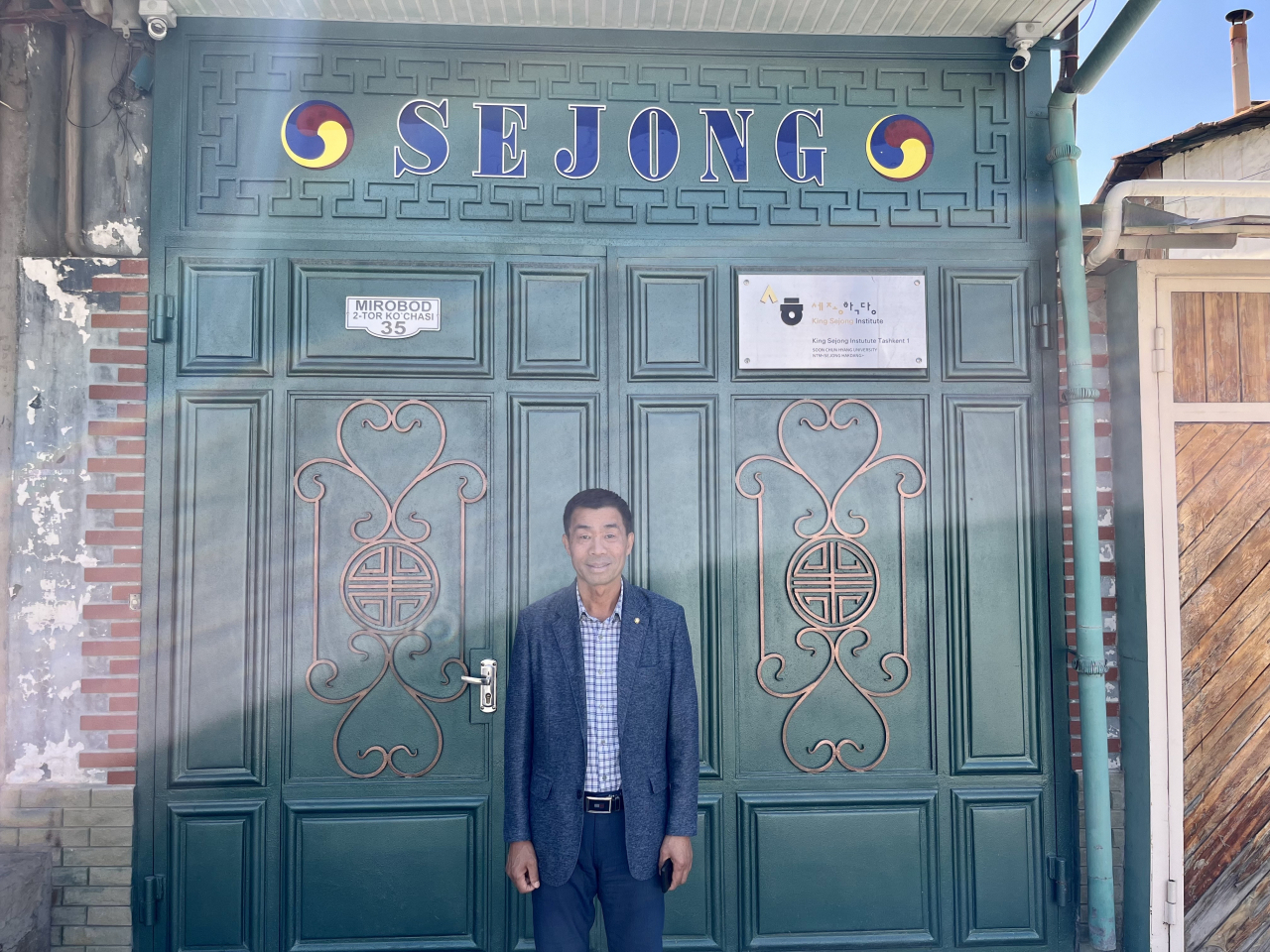
“When I was starting out as a novice teacher, I was lucky to teach about two dozen students a year. Now, every semester there about 500 students enrolled in our program,” he said.
He had to take on side jobs to keep the school running until 2000 when the Korean Embassy began to help with funding. In 2001 his school was designated as one of the King Sejong Institute branches, which meant it was getting government support.
He said that his school was probably one of the few that is large enough to offer an “all-around Korean learning experience.” The school had dress-up days for the traditional Korean attire hanbok, Korean cooking classes and history lessons focusing on the years up to and after the Korean War.
“Language isn’t just about grammar and all that. I don’t think you really learn the essence of the language unless you get to know the culture,” he said. “It’s my aim to make our school to be a place where you get to experience a bit of Korea.”
He said many of his Uzbek students were in high school or college, looking to land jobs or study in Korea.
“Proficiency in Korean itself isn’t the end goal for my students. I want to help them use Korean as a bridge to get to where they want to be in life,” he said.
“For my students, that’s kind of the dream. Getting to teach them, I’m living my dream,” said Hur, who said it has been his lifelong dream to be a teacher.
He met with every one of the last four Korean presidents before President Yoon Suk Yeol for his work in connecting ethnic Koreans overseas and teaching Korean. Looking back he said his most memorable moments weren’t being commended by the government. They were running into his former students, thriving.
“One time I got on a plane and a flight attendant came up to me, and told me she used to go to my school. She was working for a Korean air carrier.”
Hur, who also heads the National Unification Advisory Council’s Central Asia committee, said that he was often reminded of the “pains of being from the only divided country in the world, Korea.”
“In the 1990s when I first got here the Korean that they taught at universities weren’t South Korean. It was North Korean, and they used North Korean textbooks and pedagogies. There were professors from North Korea who were teaching Korean,“ he said.
“The North Korean Embassy in Uzbekistan closed about seven years ago, which means that North Korea no longer has a role it can play as a partner here.”
He said that this was another reason that keeps him motivated down the path of Korean teaching. “A common language is what keeps us connected still.”
Soul searching and Korean learning
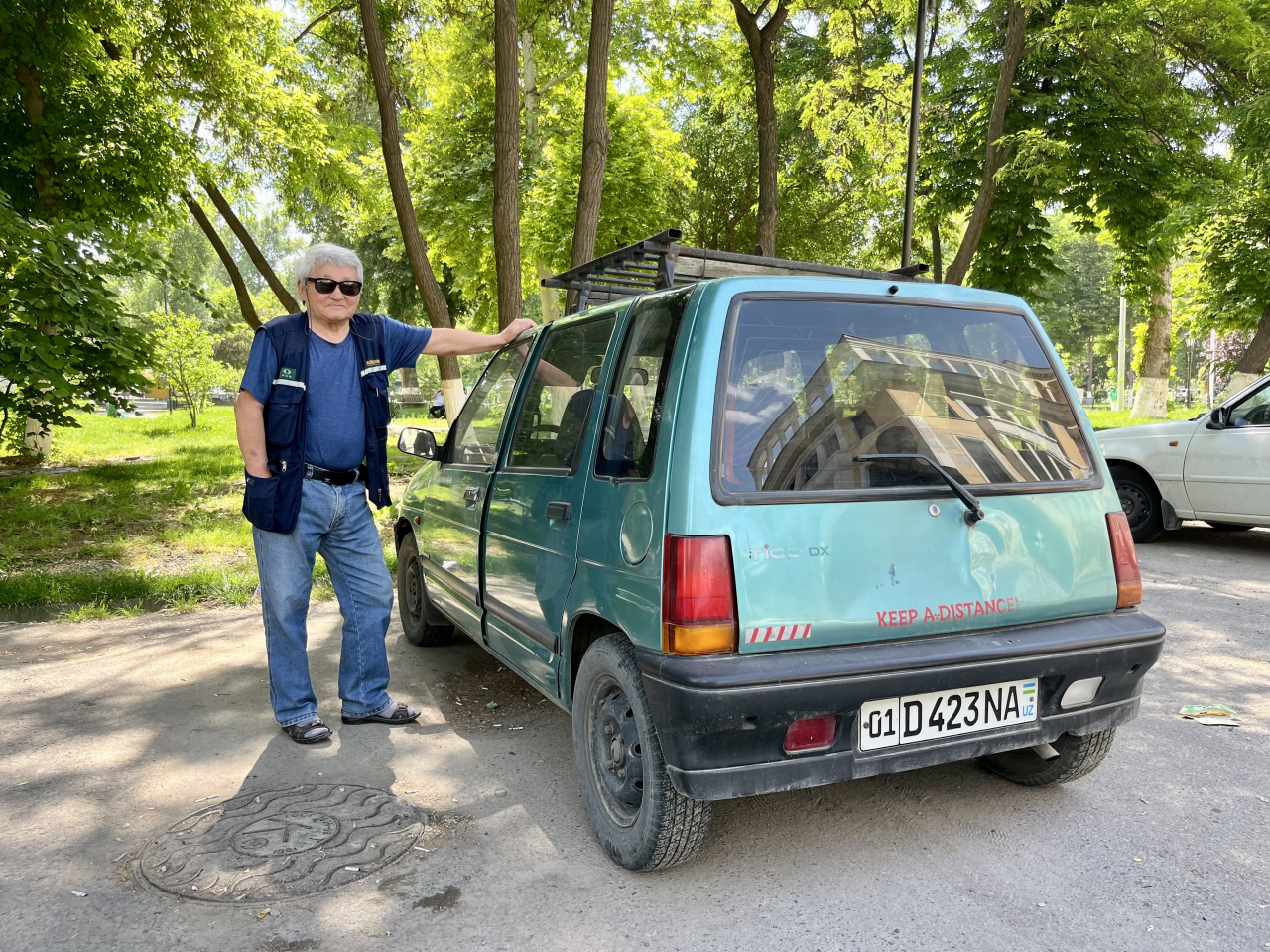
Vladimir Kim, who goes by Yong-taek in Korean, was born in 1942 in Tashkent to a North Korean immigrant household. People like him are called Koryoin, ethnic Koreans who migrated from North Korea to settle in Soviet territories.
As the youngest of 12 children, Kim remembers little of his father who is “buried somewhere in North Korea.” Some of his older siblings were born in Primorsky, the farthest region in eastern Russia that is home to many Koryoin.
After the colonial rule by Japan ended, his father, a native of North Hamgyong Province bordering Russia, took the family to North Korea. At the time there were a lot of Koryoin families like his, Kim said, looking to resettle in their home country now that it is free.
“I suppose father wanted to be back home. He died just a few years later,” he said.
His family stayed briefly in China’s Harbin, which was once colonized by Russia, after his death and then went back to live in Pyongyang for about five years more following the Korean War.
“I was little, but I remember the school I went to and how all the kids used to play in the stream. I remember the shape of trees and the smell of dirt. Us kids had a good time,” he said.
Then his family returned to Tashkent once and for all. Russian was all he read and spoke for a long time, except for when conversing with his mother. It wasn’t until he was in college and working as a journalist that he rediscovered Korean.
“In the library, they had North Korean books. I began reading all of the books I used to read in Russian as a child, like ‘Treasure Island.’ I read the Korean translation of that one more than 50 times,” he said. “It was in an unfamiliar language, but I already knew the story by heart. I found a dictionary and read it again, and again.”
He added that it was a “shame” that Korean learners don’t read books any more.
“The Korean language school opened some 30 years ago in Tashkent, and we have the King Sejong Institute now. A lot of people study Korean now but no one seems to check out books or read,” Kim said.
Before there was ever such a school, he said he pored through the Korean translations of children’s stories.
“To me reading and speaking Korean is like reminiscing,” he said. “It reminds me of home, and childhood.”
Dreaming anew
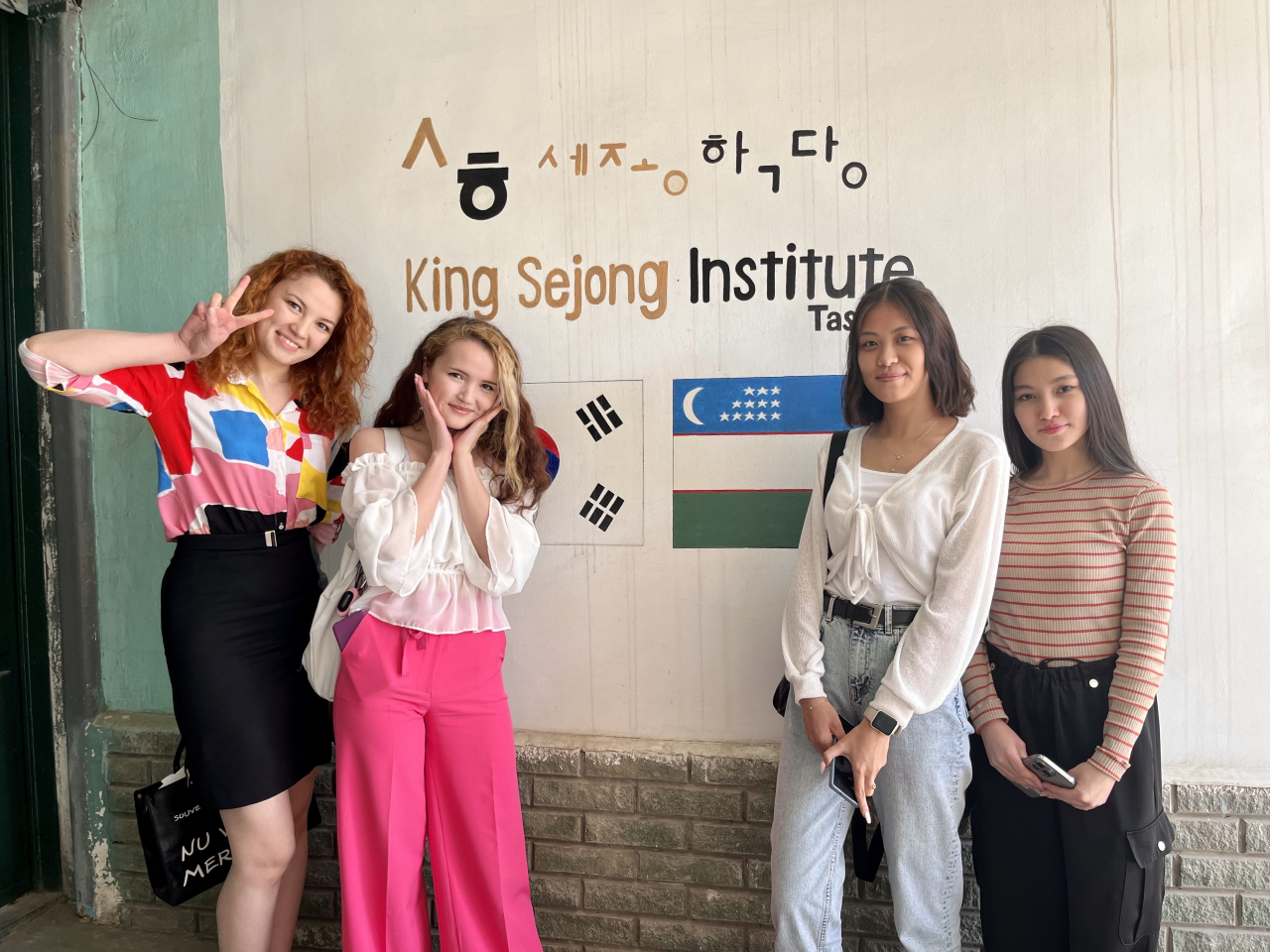
For 23-year-old Madina Takhirova, her discovery of Korean taught her there is “more to life” than marrying young and raising a family.
“It was first the TV series that got me interested in learning Korean. Then I was fascinated with the language, and it became my goal to speak Korean really well,” said Takhirova, who studies Korean at King Sejong Institute in the Uzbek capital.
She said that if it hadn’t been for her newfound hobby, she would never have dreamed of going to study at a Korean university. She and her sister Kamila, 21, are starting their freshman year at a university near Seoul in September.
The sisters’ study abroad plan was opposed by their grandfather and older relatives, who want them to stay and start a family. Their mother, who wanted her daughters to live a different life, was supportive.
“Mom was just my age when she was divorced with children. She told us she wants us to do what we want for ourselves. She was too young when she got married and never got to live out her dream,” said the older Takhirova sister.
In Uzbekistan, women are expected to marry by the time they are 20, and men around the same age too.
“A lot of people are rushing to get married and have children at my age. I thought to myself, I don’t want that kind of life. I want to study, experience things and work,” said Kamila, the younger sister.
“I think there are a lot of women, especially of my generation, who just want to go their own way and do their own thing instead of getting married.”
Korean learning became an outlet for her to explore a different possibility.
“From what I’ve seen and read, I feel like Korea is like a generation or two ahead of us,” she said. “I don’t think in Korea they rush young women to find a husband and get married. You can be any age and not be married, and I really like that.”
A push to marry young was also common in Kazakh households, said Gulsanam Nurbekova, 21, whose family immigrated to Uzbekistan generations ago.
“At my age my mom was married and had children. I thought that was the way it’s supposed to be,” said Nurbekova, who also studies at Tashkent’s King Sejong Institute.
A marketing student at a university in Tashkent, Nurbekova said she wanted to do a master’s in Korea after she graduates and work at a Korean company.
“I think it’s about finding something that you really love that gives life purpose. For me it’s Korean.”
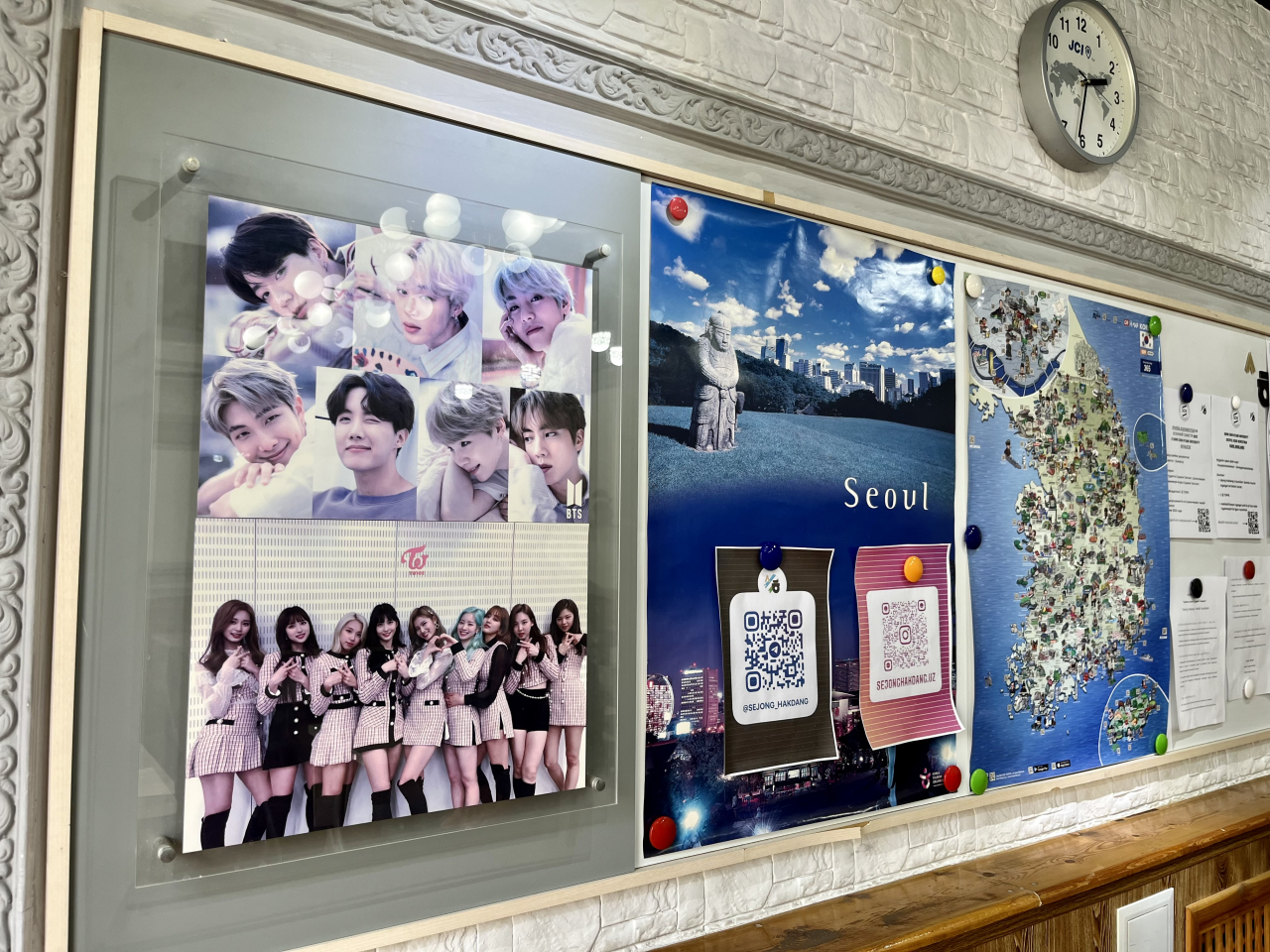





![[Weekender] Korean psyche untangled: Musok](http://res.heraldm.com/phpwas/restmb_idxmake.php?idx=644&simg=/content/image/2024/05/02/20240502050841_0.jpg&u=)

![[Eye Interview] 'If you live to 100, you might as well be happy,' says 88-year-old bestselling essayist](http://res.heraldm.com/phpwas/restmb_idxmake.php?idx=644&simg=/content/image/2024/05/03/20240503050674_0.jpg&u=)
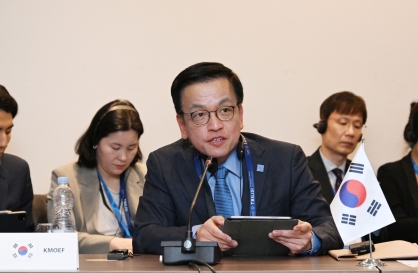




![[Korea Beyond Korea] In Sao Paulo, horizons expand for Korean studies](http://res.heraldm.com/phpwas/restmb_idxmake.php?idx=644&simg=/content/image/2023/11/20/20231120000619_0.jpg&u=20231206104853)


![[Korea Beyond Korea] Berlin, Europe's Korean Studies hub, nurtures next-gen experts, scholars](http://res.heraldm.com/phpwas/restmb_idxmake.php?idx=644&simg=/content/image/2023/10/18/20231018000929_0.jpg&u=20231023154735)






![[Herald Interview] Director of 'Goodbye Earth' aimed to ask how we would face apocalypse](http://res.heraldm.com/phpwas/restmb_idxmake.php?idx=652&simg=/content/image/2024/05/03/20240503050732_0.jpg&u=)
